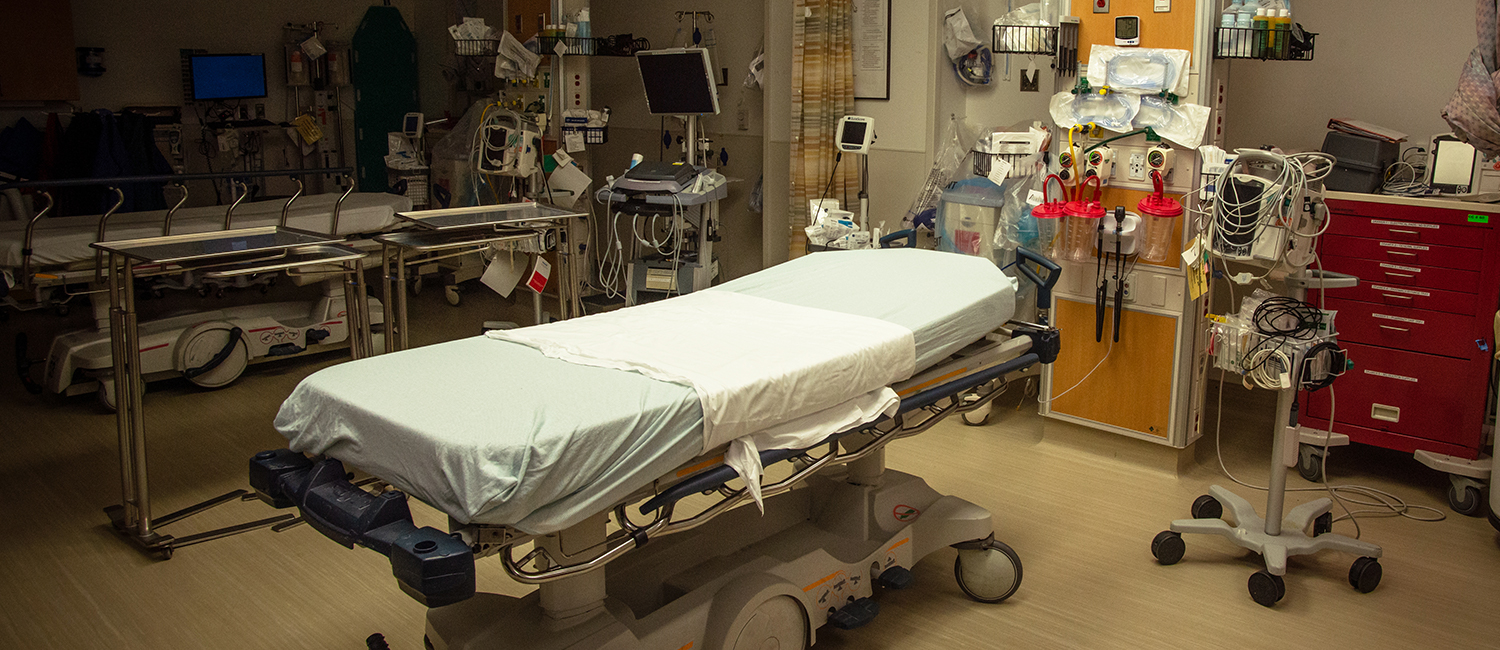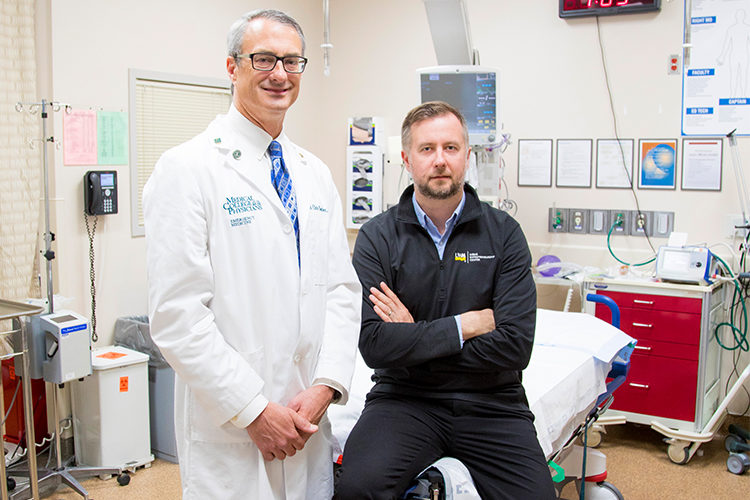
A human-centered approach to training physicians
Inside the new state-of-the-art facility for the Lubar Entrepreneurship Center (LEC), faculty members equip students with the skills and knowledge to create new products and launch their own businesses. But the underlying skills that make a good entrepreneur, such as creative and innovative thinking, are applicable to any academic field.
At the Medical College of Wisconsin (MCW), the Kern Institute for the Transformation of Medical Education is revamping how medical education is delivered to the next generation of doctors, and the LEC is helping with that mission. The partnership features a training method that develops innovative ideas based on basic problem-solving.
Called human-centered design, the method guides critical thinking, and it begins with surveying the potential user’s needs.
“In the marketplace, customers care about their problems, not about cool ideas,” says Ilya Avdeev, director of innovation at the LEC and an associate professor of mechanical engineering in the College of Engineering & Applied Science. “Human-centered design is about identifying which problems are the right ones to focus on and getting the user to help you by providing targeted feedback.”
User feedback is the secret sauce of innovation, Avdeev says, because it confirms whether you’re on to something useful. LEC training provides a structure for framing questions, whether the person using it is researching public health, launching a product or training physicians.
LEC students also are exposed to a “lean launch” method – a path of creation, testing and validation of an early-stage solution. Researchers learn targeted interviewing techniques to discover exactly what potential users are looking for. Both learn to be flexible and adjust when things don’t go as expected.

MCW faculty recently gave their students a chance to implement the LEC strategies. At an LEC workshop, 160 medical and pharmacy students conducted an exercise to improve a local hospital’s admissions department. In addition to interviewing doctors and nurses, students consulted with a wide circle of users – including paramedics, firefighters and front-desk personnel – to include a variety of perspectives in their fact-finding.
It’s not the type of issue you’d expect to see future physicians exploring, having little to do with traditional diagnosis or treatment of patients. But both the lean-launch and human-centered design techniques are relevant to MCW’s work, says Dr. Chris Decker, a professor of emergency medicine and a faculty director of the Kern Institute. Established in 2017 with support from the Kern Family Foundation, the Milwaukee-based institute is rethinking medical education by making sure students have a skill set emphasizing character, competence and caring.
Although the medical training model has remained static for years, the health care environment is changing quickly, and new physicians must be ready for that. At the same time, students are less responsive to traditional teaching methods, such as sitting in large lecture courses.
Decker hopes the LEC’s philosophy will give MCW faculty the tools to create a more meaningful educational experience for students. He says prioritizing empathy means better physician training and, by extension, better patient care. That’s because graduates come out as system-level thinkers who can make changes and address problems in a human-centered way.
“Where the ideas and improvements come from really depends on establishing collaborations,” says Decker. “The more diverse the partnerships you have, the more creative the ideas that result.”